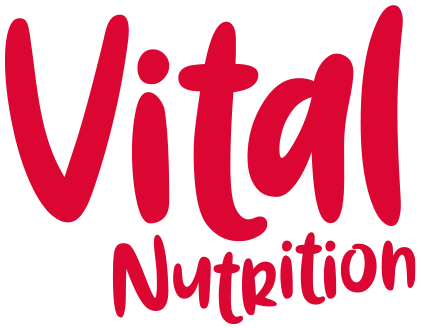Eat your heart out!
How healthy is your ticker? Unless you have a family history of heart disease, or have suffered a heart attack or stroke, the chances are you don’t give your heart much thought.
Heart disease is a big deal in Northern Ireland. According to local charity NI Chest Heart and Stroke, 335,171 people here are living with chest, heart and stroke conditions. This is about 17% of the population.
We know that there are some major risk factors for heart disease like too much alcohol, smoking, high cholesterol and being overweight, but we also know that by making some careful dietary and lifestyle adjustments, we can radically reduce our risk of heart disease.
The one risk factor we don’t have any control over is our family history, but the fate of our genes and how they are expressed is influenced by our environment - what we eat, do we exercise, how well we deal with stress, so even if you have a high incidence of heart disease in your family, it does not have to be your fate.
Simple tips for a healthy heart
Of course, everyone is individual, and there is no official ‘single diet’ that all humans should eat, but when it comes to heart health, experts agree that the Mediterranean diet is a good place to start.
There are some key ingredients in the Mediterranean diet that seem to be super for our cardiovascular health:
Eat healthy fats. The fats found in olive oil, avocado, oily fish and nuts and seeds have been associated with a healthy cholesterol balance, better blood pressure and reduced triglycerides - all major risk factors for heart disease.
Despite their healthy image, most vegetable oils are bad news for our hearts. Vegetable oil and sunflower oil, spreads and margarines are not recommended. Stick to olive oil and a little butter instead. That also means cutting back on fats food in crisps, chips and processed foods.
Eat as many colourful vegetables as you can pack onto your plate. When we think of the Mediterranean diet, we think colourful salads. Aim to pack half your plate with vegetables and get as many different types into your diet as you can. Although the official goal is at least 5 a day, the more the better - so if you can aim for 7 a day that is even better! Aim to eat a rainbow of colours and take a look at the frozen aisle for berries and different types of vegetables to help you get as much variety as possible
High fibre foods like beans, lentils, oats, whole grains, seeds and nuts are thought to help balance cholesterol. Use beans and lentils to bulk out soups and stews, sprinkle flaxseed onto porridge and choose whole grains over white stuff every time.
Keep sugar to a minimum. We know that sugar is a big player when it comes to heart disease, spiking blood sugar levels, damaging the blood vessels, overloading the liver and increasing the risk of heart disease. Not good news! So the more we can do to cut back, the better. Cut fizzy drinks, Keep an eye on added sugars from sweets, desserts, juice and soft drinks and discover healthier alternatives for your sweet tooth.
Keep an eye on salt. Use sea salt in moderation and cut back on salty snacks. Remember that foods like bacon, ham and sausages are a big contributor of salt in our diet - less is best!
Move your body - move it or lose it. Keeping active is a non-negotiable. Walk, dance, cycle - whatever you do , make sure you move your bod every day. Good for you heart as well as stress management.
Address the stress. Stress increases our risk of heart disease, so work out how best you can manage your daily stress. Mindfulness, being in nature and daily exercise can help.

